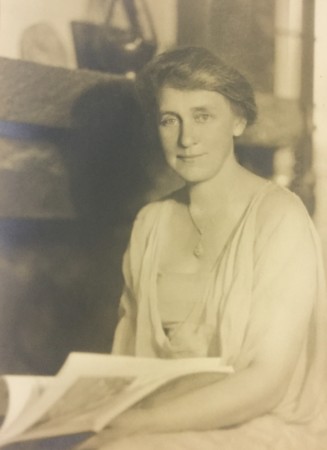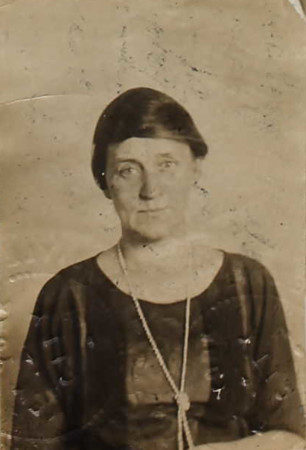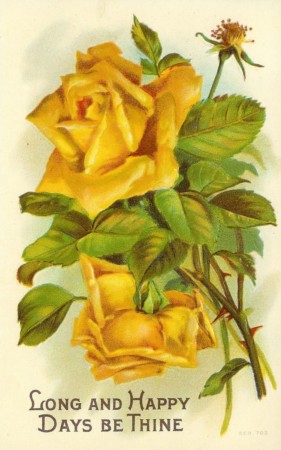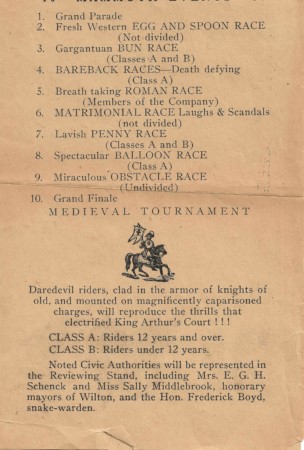Grace Schenck: Wilton’s Yellow Rose
Grace Knight Schenck was born in 1877 in Orange, New Jersey. She trained to become a registered nurse and by the time she was 30 was serving as chief surgical nurse at Roosevelt Hospital in New York City. In 1909, she married Ernest G.H. Schenck, a Belgian diamond cutter and jewelry designer. Two years later, Grace and Ernest moved to Wilton with their sickly first child, hoping the country air would improve the boy’s health.
Grace’s home in Wilton was “Graenest Farm” (named after Grace and Ernest). It was an old run-down farmhouse and surrounding acreage that the Schencks renovated by adding trails, outbuildings, gardens, and putting the land back into production. The house stood in Wilton center near where the Stop & Shop is today.
Grace dedicated herself to volunteer work in Wilton, focusing on the causes she most believed in. She was a founding member of the Women’s Civic League and a charter member of the Wilton Garden Club (along with co-suffragists Abigail Rundel, Helen Howard, and Mary Comstock). During World War I she headed Wilton’s local chapter of the Red Cross. She also helped found the Wilton Equal Franchise League in the summer of 1911. Through this and other Wilton clubs, Grace came to know all of Wilton’s most politically and socially active women, including Estelle DeWitt Weston (who was the first woman elected to the Wilton School Board), town librarian Ethel Hart, and Hannah Ambler and her sister Elizabeth Raymond of Ambler Farm.
As a local branch of the Connecticut Woman’s Suffrage Association, the Wilton league’s first project was to persuade Wilton’s selectmen to pass approval of women’s right to vote on schools – a right which had been subject to local enactment since 1893. Quickly succeeding, Grace and the Wilton Equal Suffrage League next got the first fifty-five Wilton women registered to vote. Ironically, Grace herself was ineligible. Under the 1907 Expatriation Act she had lost her American citizenship when she married a foreign national. Ernest had to become a naturalized citizen before she could vote. He did this in 1920.
In July 1912, Grace hosted the Wilton Equal Suffrage League’s first suffrage fair at Graenest. This was one of many fundraising and educational campaigns that Grace directed as league president. The fair featured local goods, entertainments, and suffrage speeches. The most memorable was Elsie Hill’s, which she allegedly delivered from a hay bale. Hill was the daughter of a U.S. congressman from Norwalk. She rose to national prominence campaigning for suffrage across the country and joining Paul’s National Woman’s Party. She was jailed for 15 days in 1918 for giving a public speech at Lafayette Square in front of the White House.
Like Hill, Grace was open to more aggressive English methods and believed in fighting for a federal amendment. In 1915, she became vice-chairman of the Connecticut branch of the Women’s Congressional Union (a precursor to Paul’s party). As vice-chairman, she was part of a deputation to a U.S. congressman’s office, marching in “wearing the regalia and carrying banners of the Congressional Union” and demanding women’s rights. A photograph of Grace and other Congressional Union women made the cover of The Suffragist.
During World War I, Grace like so many suffragists threw herself into war work. Most notably she was Connecticut State Chairman of the Woman’s Land Army of America. The Land Army recruited women volunteers and operated units in twenty states, placing female farm labor where it was needed most throughout the war.
Grace did not stop working after women got the vote in 1920. She was a founder of the Fairfield County Republican Women’s Association in 1921, and founder and president of the Wilton Republican Women’s Association. These organizations taught women about political processes and how to participate fully and effectively as citizens. They also provided a place for women with shared political interests to meet and forge alliances for change. Under Grace’s leadership the Wilton Republican Women’s Association campaigned for the best candidates, regardless of party. In 1923, they successfully elected Democrat W.K.J. Hubbell over the Republican candidate for Wilton First Selectman.
Grace became so well-known and respected that she was affectionately referred to as an honorary mayor of Wilton. She passed away in 1931 at the age of 53.









